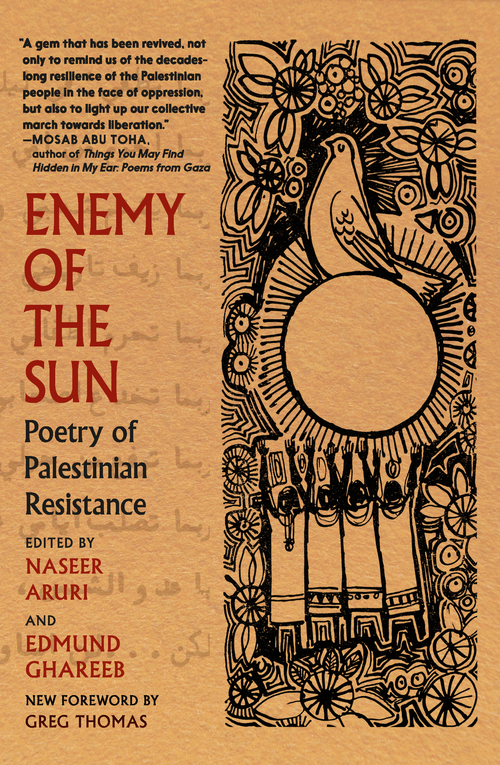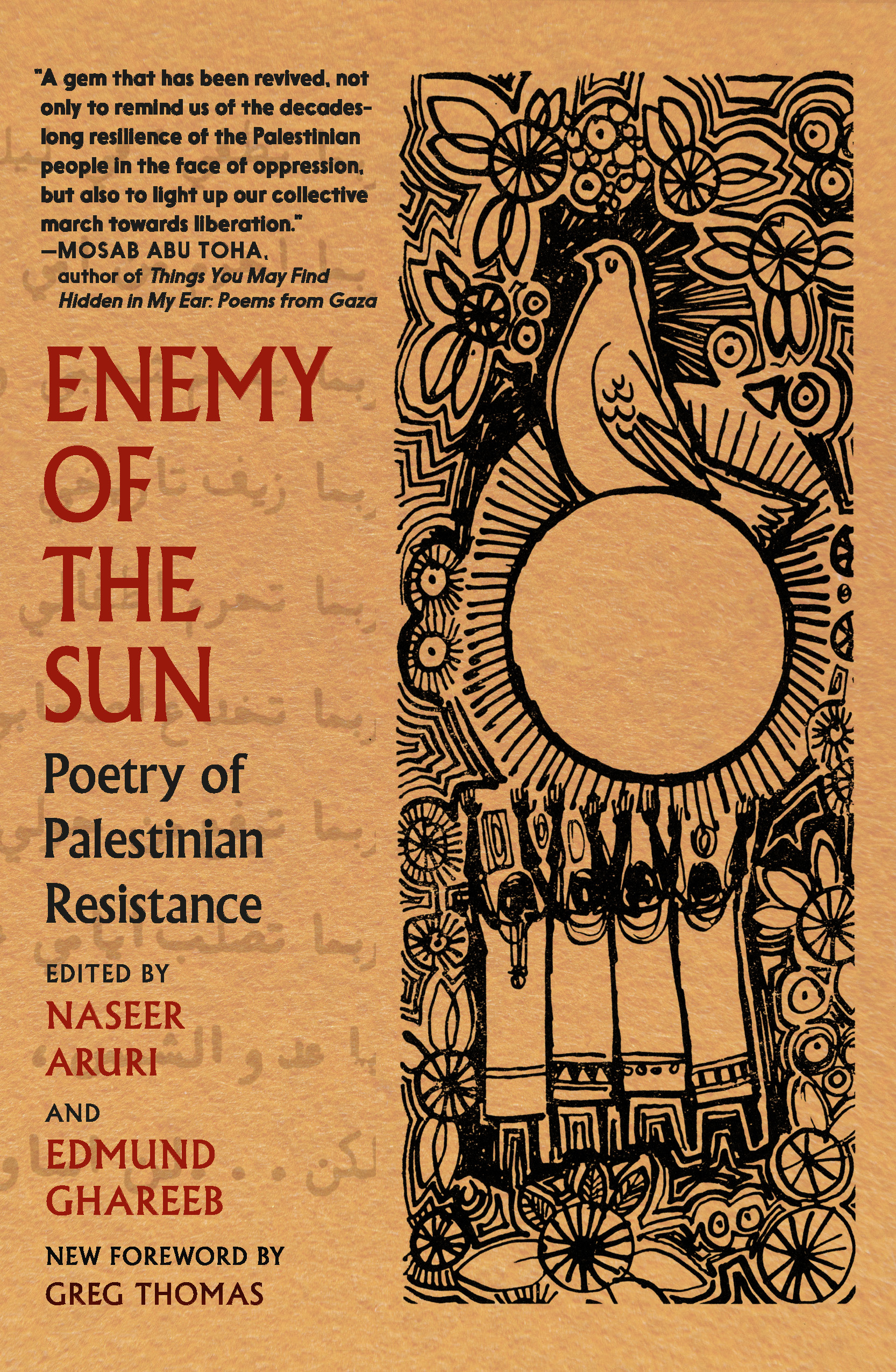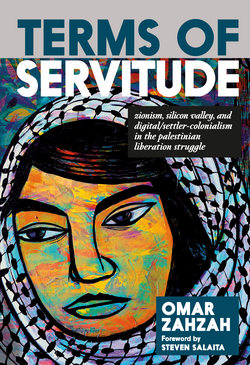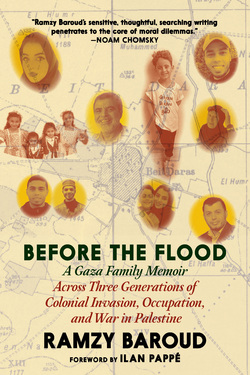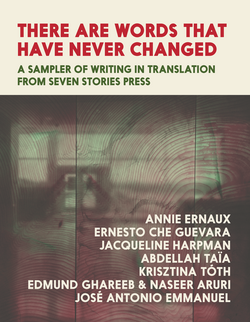A collection of Palestinian poetry originally published in 1970 that resonates with liberation and civil rights struggles around the world.
This updated edition for the current generation of activists features new poems translated by Edmund Ghareeb, an internationally recognized Lebanese-American scholar, and a new foreword by Dr. Greg Thomas.
In 1971, in the wake of George Jackson’s killing by San Quentin prison guards, a poem entitled “Enemy of the Sun” was found among ninety-nine books in the revolutionary’s cell. The handwritten poem came to be circulated in Black Panther newspapers under Jackson’s name, assumed to be a vestige of his more than a decade long incarceration. But Jackson never wrote the poem; it was authored by the Palestinian poet Sameeh Al-Qassem and had been included in an anthology of the same title a year before Jackson’s death.
Originally published by Drum & Spear, the publishing arm of the Student Nonviolent Coordinating Committee, Enemy of the Sun: Poetry of Palestinian Resistance links twelve poets working in a poetics of refusal and of hope. Bearing witness to decades of Zionist occupation, to a diaspora exiled in refugee camps and writers held captive in Israeli jails, the collection offers a means to an end: “as poetry, yes it sings—as bullets on a mission; it calls for change.”
In each poem is a whole life—joy, love, beauty, rage, sorrow, suffering—and in each life is a record of resistance: the traces of a people who refuse to leave their homeland, who time and again alchemize grief into principled struggle. In the intertwined histories of this book, and in the unyielding political edge of the poems themselves, is a long story of solidarity between oppressed peoples: from Palestine to South Africa to Algeria to Vietnam to the United States.
